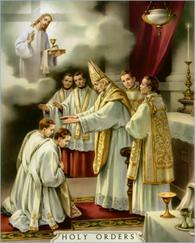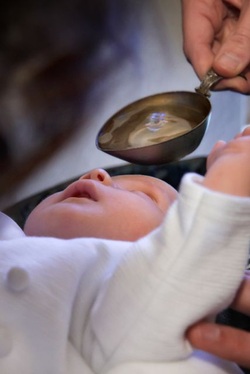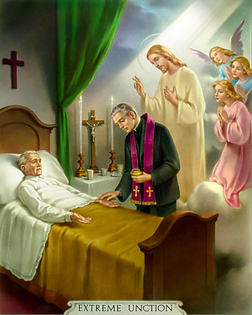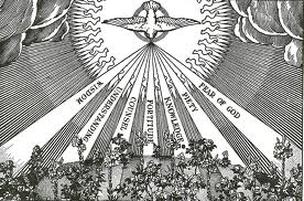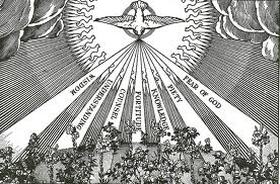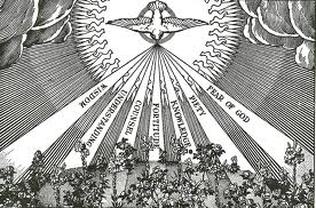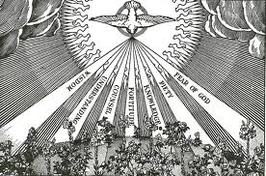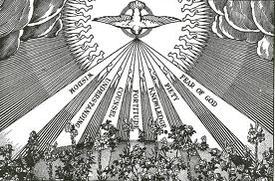Sanctity required to enter Holy Orders.
By St. Alphonsus
It must be observed that as we are very much exposed to be lost when to please our relatives we do not follow the divine vocation, so we also endanger our salvation when not to displease them we embrace the ecclesiastical state without being called to it by God. Now, a true vocation to this sublime dignity is distinguished by three signs, namely the requisite knowledge, the intention of applying ones self only to God s service, and positive goodness of life. We shall here speak only of this last condition.
The Council of Trent has prescribed to bishops to raise to Holy Orders only those whose irreproachable conduct has been proved. This is a rule that Canon Law had already established. Although this is directly understood of the external that the should proof bishop have in regard to the irreproachable conduct of the aspirants to the priesthood, yet one cannot doubt that the Council requires not only external irreproachableness, but even with greater reason, interior irreproachableness, without which the former would be illusory. The Council also adds that those only are to be admitted to Holy Orders who show themselves worthy by a wise maturity. We, moreover, know that the Council prescribes for this end the keeping of the interstices, that is, of an interval of time between the different degrees of Holy Orders
St. Thomas gives a reason for such a regulation: it is this, that in receiving Holy Orders one is destined to the most sublime ministry, that of serving Jesus Christ in the Sacrament of the Altar. Hence the angelic Doctor adds that the sanctity of ecclesiastics ought to surpass that of the religious. He elsewhere explains that sanctity is required not only in those who are ordained, but also in the subject who presents himself to be admitted to Holy Orders, and he shows the difference that exists in this respect between the religious and the ecclesiastical state. For in religion one purifies one self of one's vices, whilst to receive Holy Orders it is necessary that one has already led a pure and holy life.1 The holy Doctor also says in another place that the candidates for Holy Orders to be raised above the faithful ought simple by their virtue as well as by the dignity of their functions.2 And this merit he requires before ordination, for he calls it necessary not only in order to exercise well the ecclesiastical functions, but also to be worthily admitted among the number of the ministers of Jesus Christ. He finally concludes with these words: “In the reception of the Sacrament of Holy Orders, the candidates receive a more abundant outpouring of grace in order thus to be in a position to advance to a higher perfection.” By these last words, “to advance to a higher perfection,”3 the saint declares that the grace of the sacrament, far from being useless, will dispose the subject by an increase of strength to obtain still greater merits; but he expresses, at the same time, how it is for the candidate necessary to prepare himself in a state of grace that is sufficient in order that he may be judged worthy of entering the sanctuary.
In my Moral Theology I have given on this point a long dissertation to establish that those cannot be excused from mortal sin who without having been sufficiently tried by a holy life receive a Holy Order; since they raise themselves to this sublime state without a divine vocation; for one cannot regard those as having been called by God who have not yet succeeded in over coming a bad habit, especially the habit of offending against chastity. And whenever among those one might be found who is disposed by repentance to receive the Sacrament of Penance, he would nevertheless not be in a condition to receive Holy Orders, for in his case there must be more holiness of life manifested during a long trial. Otherwise the candidate would not be exempt from mortal sin on account of the grave presumption that he wished to intrude into the holy ministry without a vocation. Hence St. Anselm says: “Those who thus thrust themselves into Holy Orders and have in view only their own interests are robbers who arrogate to themselves the grace of God; instead of benediction they would receive God's malediction.” As Bishop Abelly remarks they would expose themselves to the great danger of being lost forever:“Whoever deliberately and without troubling himself whether or not he had a vocation would thrust himself into the priesthood, would without doubt plainly expose himself to eternal perdition.” So to holds the same opinion when he asserts, in speaking of the Sacrament of Holy Orders, that positive sanctity in the candidate is of divine precept: “Assuredly,”he says, “this sanctity is not essential to the sacrament, though it is altogether necessary by a divine precept. . . . Now, the sanctity that should characterize the candidates to Holy Orders does not consist in the general disposition required for the reception of the other sacraments, and sufficient in order that the sacrament may not be impeded. For, in the Sacrament of Holy Orders, one receives not only grace, but one is raised to a much more sublime state. Hence in the candidates there must be great purity of life and perfect virtue.”4 Thomas Sanchez, Holzmann, the school of Salamanca, are also of the same opinion. Thus, what I have advanced is not only the opinion of one theologian, but it is the common teaching based upon what is taught by St. Thomas.
If any one receive Holy Orders without having led the requisite good life, not only would he himself commit a mortal sin, but also the bishop who confers them upon him without having been morally certain, by sufficient proofs of the good conduct of the candidate. The confessor also would be guilty of mortal sin because he gives absolution to one who, addicted to a bad habit, wishes to be ordained without having given evidence during a considerable time of a positively good life. Finally, parents also sin grievously because,though knowing the wicked conduct of their son, they yet try to induce him to take Holy Orders in order that afterwards he may become the support of the family.
1 Summa 2. 2, q. 189, a. I.
2 Ut, sicut illi, qui Ordinem suscipiunt, super plebem constituuntur gradu Ordinis, ita et superiores sint merito sanctitatis.
3 Suppl. q. 35, a. i.
4 In Sent. d. 25, q. i, a. 4.
I have shewed you all things, how that so labouring you ought to support the weak, and to remember the word of the Lord Jesus, how he said: It is a more blessed thing to give, rather than to receive. Acts 20:35
